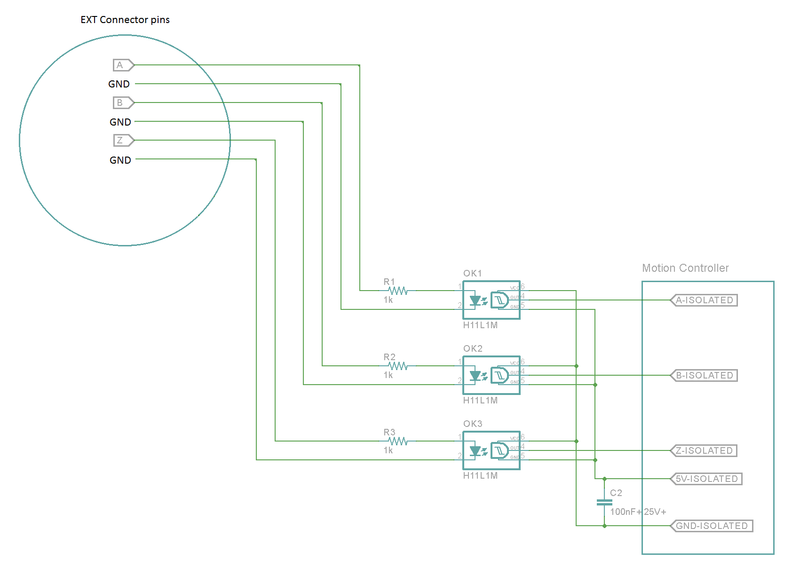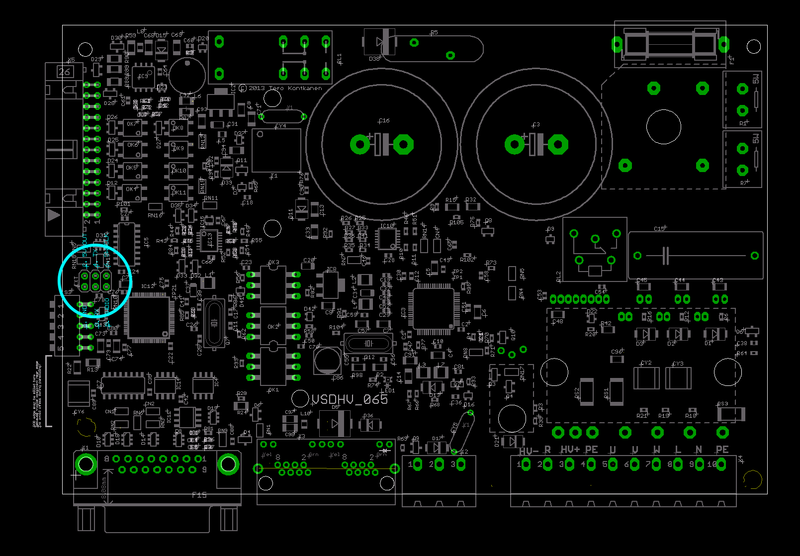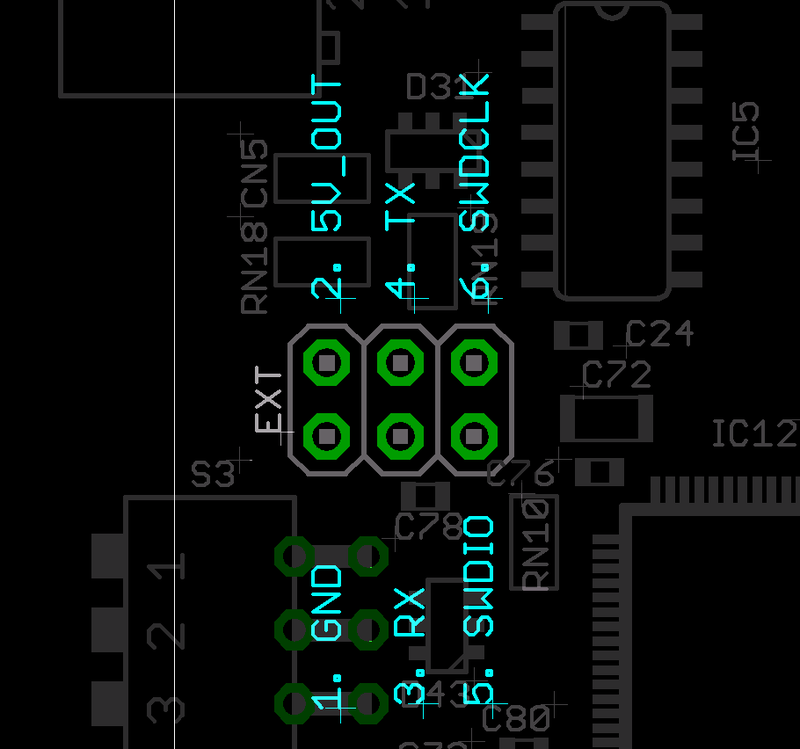Argon EXT connector
Argon (servo drive) has an internal 6 pin header that is directly connected to the I/O side user programmable STM32F205RBT6 microcontroller. EXT connector has several purposes:
- MCU debugging port (SWD)
- Extension board connector (5V power supply and I/O & UART to extension board)
- Simulated encoder output port (i.e. output resolver position in quadrature format)
| EXT connector is directly wired to microcontroller I/O pins without any protection devices (such as ESD clamp diodes, or resistors). Any miswiring may cause permanent damage to the drive. |
| Damage caused through EXT connector is not covered by the warranty. |
Pinout[edit | edit source]
Simulated encoder output[edit | edit source]
From Argon firmware 2.0 version, the default function of EXT connector is an simulated encoder output. The pins will output quadrature signals to represent the position changes on feedback device (encoder, resolver etc).
- Features
- Output A,B,Z 3.3 volt signals
- Minimum output pulse length 2 µs (requirement for receiving device to accept count rate of 1 MHz)
- Output resolution is divided by 4 compared to the native resolution of the feedback device. I.e. single turn resolver will yield 512 encoder pulses per revolution (2048 counts per rev after 4X decoding).
- Limitations
- Output has lots of jitter (will look ugly on oscilloscope)
- Index pulse may have delay of 1ms or more delay from the real index pulse location. EXT index pulse should be used for homing at very low speeds only (speed less than 1000 of feedback device counts per second)
- No ESD protection, external buffer or protection circuit highly recommended
- Maximum output count rate 275 000 counts/s
- Pinout of encoder simulation
- GND
- 5V_OUT (leave unconnected if not needed)
- A
- B
- Z (index)
- Not in use, do not connect
- Wiring
As EXT connector pins are directly connected to microcontroller, they are very sensitive to ESD and damage by inproper loading. It is highly recommended to use optoisolator based buffer between the motion controller and EXT connector to prevent damaging devices in case of wiring error.
The suggested way is to use optocouplers with type H11L1 and circuit in order to achieve galvanic isolation and signal buffering at the same time.

Encnoder simulator signal buffering with isolation. 5V-ISOLATED should be connected to motion controller's 5V supply (powering the optoisolators).
Suggested part types for isolation are:
- Optoisolators: H11L1 (support frequency up to 500 kHz)
- Resistors: 1 kOhm
- Capacitor (for opto 5V supply): 100nF 25V ceramic. Optionally also 10-100uF electrolytic in parallel.
In addition to this, pull-up resistors may be necessary in optoisolator outputs: three 470 to 1000 ohm resistors from A-ISOLATED to 5V-ISOLATED, B-ISOLATED to 5V-ISOLATED and Z-ISOLATED to 5V-ISOLATED. The need of pull-ups depend on whether the motion controller has internal pull-up resistors or not.
In no event the Product Information or parts hereof shall be regarded as guarantee of conditions or characteristics. The Product Information or any part thereof may also not be regarded as a warranty of any kind. No liability of any kind shall be assumed by Author with respect to Product Information or any use made by you thereof, nor shall Author indemnify you against or be liable for any third party claims with respect to such information or any use thereof.
As content of this Wiki may be edited by user community, Granite Devices Oy or it's affiliates do not take any responsibility of the contents of this Wiki. Use information at your own risk. However, Granite Devices staff attempts to review all changes made to this Wiki and keep information trustworthy.
Without written consent, Granite Devices' Products or Intellectual Property shall not be used in situations or installations where living beings, material property, or immaterial property could be harmed by the operation, features or failures of Product. Products may only be used in a way where hazards like moving parts, electric shock, laser radiation, or fire can't be realized even if the content of this Wiki would suggest otherwise.

